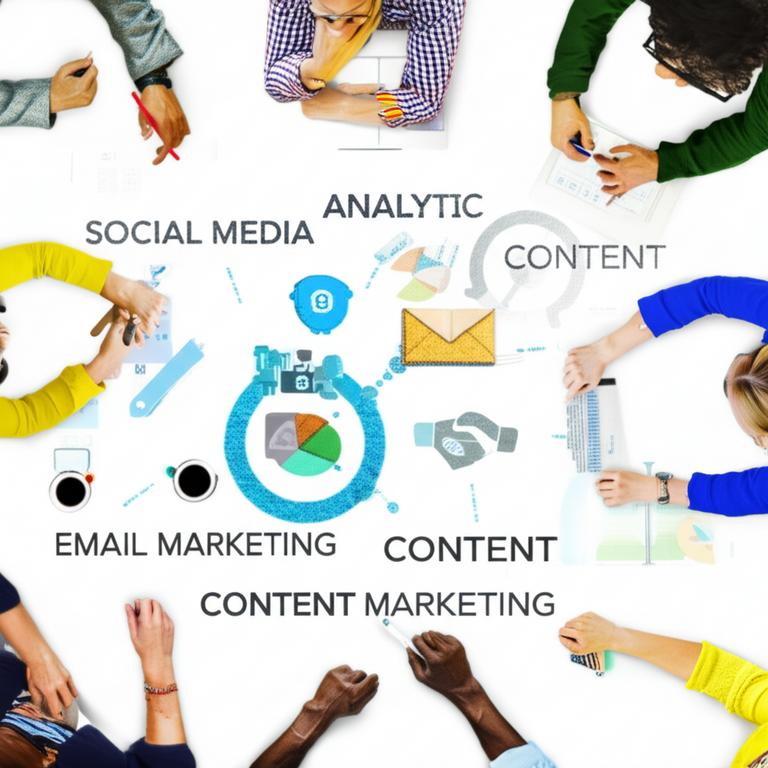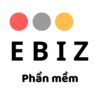Online Marketing: Strategies, Trends, and Tools for Success

What is Online Marketing?
Nội dung
Online marketing, also known as digital marketing, encompasses all marketing efforts that use the internet and electronic devices to connect with current and prospective customers. It leverages various digital channels such as search engines, social media, email, and websites to promote products or services.
Why is Online Marketing Important?
In today’s digital age, online marketing is crucial for businesses of all sizes. Here’s why:
- Broader Reach: Connect with a global audience, exceeding geographical limitations.
- Targeted Marketing: Reach specific demographics and interests for higher conversion rates.
- Measurable Results: Track and analyze campaign performance to optimize strategies.
- Cost-Effective: Often more affordable than traditional marketing methods.
- Increased Engagement: Interact with customers in real-time, building stronger relationships.
Key Online Marketing Strategies
Search Engine Optimization (SEO)
SEO involves optimizing your website to rank higher in search engine results pages (SERPs). This includes keyword research, on-page optimization, link building, and technical SEO. The higher your website ranks, the more organic traffic you’ll receive. For example, Moz offers a comprehensive guide to SEO: https://moz.com/beginners-guide-to-seo
Content Marketing
Content marketing focuses on creating and distributing valuable, relevant, and consistent content to attract and engage a target audience. This includes blog posts, articles, videos, infographics, and e-books. A strong content strategy helps establish authority, build trust, and drive traffic. Check out HubSpot’s blog for content marketing insights: https://blog.hubspot.com/marketing/what-is-content-marketing
Social Media Marketing (SMM)
SMM involves using social media platforms like Facebook, Instagram, Twitter, and LinkedIn to connect with your audience, build brand awareness, and drive traffic. It includes creating engaging content, running targeted ads, and interacting with followers. Hootsuite provides resources for social media marketing: https://blog.hootsuite.com/social-media-marketing/
Email Marketing
Email marketing is a direct marketing channel that allows you to communicate with your audience through email. It involves building an email list, sending targeted emails, and tracking campaign performance. Email marketing can be used to nurture leads, promote products, and build customer loyalty. Mailchimp offers email marketing tools and resources: https://mailchimp.com/resources/email-marketing/
Pay-Per-Click (PPC) Advertising
PPC advertising involves paying for ads that appear on search engines and other websites. When someone clicks on your ad, you pay a fee. PPC can be a quick way to drive traffic and generate leads. Google Ads is a popular PPC platform. Learn more at: https://ads.google.com/home/
Affiliate Marketing
Affiliate marketing is a performance-based marketing strategy where you partner with affiliates who promote your products or services in exchange for a commission on sales. It’s a cost-effective way to expand your reach and generate leads.
Influencer Marketing
Influencer marketing involves collaborating with influencers who have a large and engaged following on social media. Influencers can promote your products or services to their audience, building brand awareness and driving sales.
Current Trends in Online Marketing
Artificial Intelligence (AI)
AI is transforming online marketing by automating tasks, personalizing experiences, and improving campaign performance. AI-powered tools can analyze data, generate content, and optimize ads.
Video Marketing
Video is becoming increasingly popular as a marketing tool. It’s engaging, informative, and can be used to tell stories and connect with your audience on a deeper level. Platforms like YouTube and TikTok are key for video marketing.
Personalization
Customers expect personalized experiences. Online marketing tools allow you to tailor your messaging, content, and offers to individual customers based on their behavior and preferences.
Mobile Marketing
With the majority of internet users accessing the web on mobile devices, mobile marketing is essential. This includes mobile-friendly websites, mobile ads, and SMS marketing.
Voice Search Optimization
As voice search becomes more prevalent, optimizing your content for voice search is crucial. This involves using natural language and answering common questions.
Essential Online Marketing Tools
SEO Tools
- Google Analytics: Track website traffic and user behavior.
- Google Search Console: Monitor your website’s performance in Google search.
- SEMrush: Research keywords, analyze competitors, and track rankings.
- Ahrefs: Analyze backlinks, research keywords, and track website performance.
- Moz Pro: Provides a suite of SEO tools for keyword research, rank tracking, and site audits.
Content Marketing Tools
- HubSpot: All-in-one marketing platform for content creation, email marketing, and social media management.
- BuzzSumo: Discover popular content and identify influencers.
- Grammarly: Improve your writing and grammar.
- Canva: Create visually appealing graphics and designs.
Social Media Marketing Tools
- Hootsuite: Manage multiple social media accounts and schedule posts.
- Buffer: Schedule and analyze social media posts.
- Sprout Social: Social media management platform with analytics and reporting.
Email Marketing Tools
- Mailchimp: Email marketing platform for creating and sending email campaigns.
- Constant Contact: Email marketing platform for small businesses.
- Sendinblue: Email marketing, SMS marketing, and chat platform.
Analytics Tools
- Google Analytics: Track website traffic and user behavior.
- Adobe Analytics: Enterprise-level analytics platform.
- Ebiz: While primarily a Point of Sale (POS) system, Ebiz can integrate with various marketing tools to track sales data and customer behavior, providing valuable insights for marketing campaigns.
Online Marketing for Local Businesses
Local SEO is crucial for businesses that serve a specific geographic area. This involves optimizing your Google My Business listing, building local citations, and encouraging customer reviews.
Google My Business
Claim and optimize your Google My Business listing to appear in local search results and Google Maps. Include accurate business information, photos, and customer reviews.
Local Citations
Build local citations by listing your business in online directories such as Yelp, Yellow Pages, and Bing Places for Business.
Customer Reviews
Encourage customers to leave reviews on Google, Yelp, and other review sites. Positive reviews can improve your search ranking and attract new customers.
Measuring Online Marketing Success
Key Performance Indicators (KPIs)
- Website Traffic: Track the number of visitors to your website.
- Conversion Rate: Measure the percentage of visitors who complete a desired action, such as making a purchase or filling out a form.
- Cost Per Acquisition (CPA): Calculate the cost of acquiring a new customer.
- Return on Investment (ROI): Measure the profitability of your marketing campaigns.
- Engagement Rate: Track the level of interaction with your content on social media.
Tools for Tracking KPIs
- Google Analytics: Track website traffic, user behavior, and conversions.
- Google Ads: Track the performance of your PPC campaigns.
- Social Media Analytics: Track engagement and reach on social media platforms.
Conclusion
Online marketing is a dynamic and ever-evolving field. By understanding the key strategies, staying updated on the latest trends, and utilizing the right tools, businesses can effectively reach their target audience, build brand awareness, and drive growth.
Ready to take your business to the next level? Visit our store to explore POS Ebiz solutions and discover how they can integrate with your online marketing efforts.

